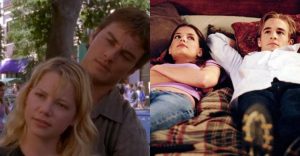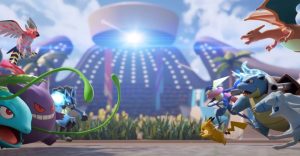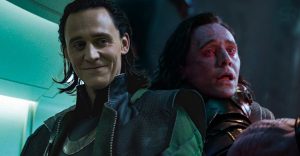Spider-Man: No Way Home Fixes The MCU’s Iron Man Hero Formula

Warning: The following contains spoilers for Spider-Man: No Way Home
The Marvel Cinematic Universe has used a similar hero formula for most major characters introduced since Iron Man, but Spider-Man: No Way Home finally fixes both the formula as well as the MCU’s portrayal of Peter Parker (Tom Holland). The MCU tends to deliver movies loved by critics and audiences, but there’s a vocal minority disappointed in how some characters are portrayed, particularly when it comes to Spider-Man, but Spider-Man: No Way Home may change that.
The MCU started small, introducing one character at a time before the first team-up in The Avengers, featuring a team of six characters, but by the time of Avengers: Endgame‘s final battle, over a decade later, there were 36 heroes rushing across the screen to engage with the forces of Thanos (Josh Brolin). Those 36 characters didn’t all get their own origin film or fully fleshed out character arc, but audiences still knew most of them and were invested in them thanks to the way the MCU has been able to hook audiences into its films. Those characters all came from different worlds with different backgrounds and power sets, but in some way, most of them were inspired by Tony Stark (Robert Downey Jr.), both in-universe and in the way the first Iron Man movie’s success influenced the way the MCU’s approach to superheroes.
This was especially true for Spider-Man, whose true origin story wasn’t even a part of his MCU origin, where Tony Stark recruited him in Captain America: Civil War to help his team face down against Captain America during the airport battle. Spider-Man’s first proper superhero costume was created by Stark, using plenty of tech similar to his Iron Man suits, and that relationship continued through Spider Man’s solo movies and the Avengers films, meaning Peter Parker’s role in the MCU and how he’s written, has always had difficulty getting out of Iron Man’s shadow until Spider-Man: No Way Home.
The MCU’s Heroes Don’t Struggle With Identity or Consequences

Much has been made of the MCU formula, and while the examination of that formula often rests on things like tone and structure, there’s another key element established in the very first MCU film, Iron Man. Tony Stark ends the movie with a surprise declaration establishing the MCU mold moving forward when he declares for the whole world, “the truth is, I am Iron Man.” Superhero movies to that point had been largely defined by the main character’s struggle maintaining a public identity and a superhero alter-ego, but Tony Stark shattered that pattern by embracing his superhero identity.
Secret identities really aren’t a part of the cinematic MCU at all, with Scott Lang (Paul Rudd) being the only other character who really has to conceal his identity, although the existence of his superhero alter-ego isn’t really used as a main point of drama in his films. In fact, the only MCU character to this point to really struggle with maintaining a dual persona is Bruce Banner (Edward Norton) in The Incredible Hulk, although his struggle isn’t one of a secret identity, but one of managing the split personality/physicality of The Hulk. By the end of The Avengers, Banner (recast as Mark Ruffalo) embraces the duality in the movie’s climax, but the plot isn’t given much more development after that, eventually having his true reconciliation into Smart Hulk happen off-screen between Avengers: Infinity War, and Avengers: Endgame, highlighting the MCU’s aversion to dealing with heroes who struggle with the burden and consequences of their powers.
The same thing happened with Tony Stark after Iron Man 3 saw him destroy his suits and remove his arc reactor at the end, only to lean even more into Iron Man as the MCU progressed. Sure, there were negative consequences in the form of Ultron, but Tony’s technology was also the solution to that problem, and with their initial defeat by Thanos vindicating Tony’s drive to “build a suit of armor around the world,” and then, of course, Tony’s time travel machine and Iron Guantlet were the key to defeating Thanos. Tony Stark being Iron Man was always the ultimate solution to all his problems, even if it was sometimes also the cause.
Spider-Man’s Secret Identity Didn’t Fit in the MCU

Spider-Man: Homecoming and Spider-Man: Far From Home were well received by critics and audiences, but there was still a lingering criticism that Tom Holland’s Spider-Man was lacking the elements that define Spider-Man, with many of those complaints surrounding his origin and the lack of Uncle Ben. Spider-Man was one of the few MCU characters to maintain a dual persona, but by substituting Iron Man as his initial role model and defining the hero through the lens of The Avengers from his very first appearance, there was very little conflict between Peter Parker and Spider-Man. Sure, he had to maintain his life as an everyday high schooler but surrounded by heroes and villains that took him “far from home” from the beginning and having those closest to him be aware of his identity, Peter Parker never had to struggle with the personal responsibility accompanying his superhero powers in the same way as Tobey Maguire and Andrew Garfield’s iterations did.
Toby Maguire’s first Spider-Man ended with him having to turn down a romantic relationship with Mary Jane, including the closing monologue “no matter what I do, no matter how hard I try, the ones I love will always be the ones who pay.” Andrew Garfield’s iteration ended on a similar note in The Amazing Spider-Man when Captain Stacy gives him a charge: “you’re gonna make enemies. People will get hurt. Sometimes the people closest to you. So I want you to promise me something, okay? Leave Gwen out of it.” Even Spider-Man: Into the Spider-Verse, hammers this home by introducing a number of wildly different versions of Spider-Man, all with a common theme, elucidated by Spider-Pig “Miles, the hardest thing about this job is you can’t always save everybody.”
Holland’s Spider-Man had all the right trappings of Spider-Man. He nailed the personality, he looked like Spider-Man, and he had all the right powers, but he was never put in a position that required him to choose between Peter Parker and Spider-Man before Spider-Man: No Way Home. Some criticisms of him as “Iron Boy” or “Little Iron Man” might have been a little harsh, but there was an element of truth in the fact that he fit Iron Man’s brand of heroism more than the traditional Spider-Man role, as being Spider-Man was always the solution to all of Spider-Man’s problems. In Spider-Man: Homecoming, Tony Stark even urges him “can’t you just be a friendly neighborhood Spider-Man?” until Spider-Man’s desire to be a hero and a member of The Avengers leads to him saving the day against Vulture (Michael Keaton), leading to Stark offering him a role on the team. Peter turns it down, but the point had already been made: Spider-Man was a solution to Peter’s problems, not the cause of them.
No Way Home Fixes Spider-Man By Subverting The MCU Hero Formula

While the MCU Spider-Man movies to this point have largely dodged Peter Parker’s struggle with his Spider-Man identity, Spider-Man: No Way Home puts that struggle front and center, with the plot literally revolving around the consequences of people knowing Peter Parker is Spider-Man. Unlike how Tony Stark’s “I am Iron Man” kickstarted the MCU, Spider-Man: No Way Home sees Peter Parker wanting everyone to forget the fact that he’s Spider-Man after Mysterio revealed his identity at the end of Spider-Man: Far From Home.
The typical MCU approach to superheroes and secret identities depicts heroes as people whose abilities empower them to solve their problems and save the day and the conflicts revolve around how their powers aren’t enough, with the solution resting on them finding ways to be faster, stronger, and smarter to defeat their enemies, save the world, and undo the negative consequences of their heroism. Spider-Man: No Way Home goes the opposite direction, with Spider-Man’s identity becoming a problem for Ned Leeds (Jacob Batalon) and MJ (Zendaya) and his attempt to save the villains directly leading to Aunt May’s death; however, this is where the MCU backtracks on Peter’s Spider-Man origin story so far, going back to the traditional roots of the character as a dying Aunt May delivering the classing “with great power comes great responsibility” line.
Peter’s powers, his identity, and his choice to make heroic decisions are all directly responsible for the series of events that turn his life and the lives of his friends upside down, and unlike the typical MCU movie, the solution doesn’t see him increasing how power and putting all the pieces back together, and declaring “I am Spider-Man,” but in having Doctor Strange make the whole multiverse forget Peter Parker is Spider-Man. He initially planned on reconnecting with Ned and MJ to get some of his normal life back, but when he sees them happily looking forward to MIT (where they’d previously been rejected because of him), and sees the bandage on MJ’s forehead to remind him of the physical danger he put her in, he decides to let go of his life as Peter Parker fitting right in with Tobey Maguire’s closing Spider-Man monologue: “whatever life holds in store for me, I will never forget these words: ‘With great power comes great responsibility.’ This is my gift, my curse. Who am I? I’m Spider-man.”
The previous MCU approach wasn’t flawed in its conception, it works great for characters like Tony Stark, Captain America (Chris Evans), or Thor (Chris Hemsworth). Different characters are created with different archetypes to tell different stories or teach different lessons. The problem is when the formula becomes a one-size-fits-all approach and the way the MCU introduced Spider-Man as a Tony Stark prodigy who became a member of the Avengers and took him to conflicts literally “far from home” and prevented him from going through this same arc until now. Of course, the journey and climax of Spider-Man: No Way Home wouldn’t have had the same punch without the detour in his protracted origin story, but by the end of No Way Home, Spider-Man out of the shadow of Tony Stark and the MCU has embraced what makes him different from the other heroes.
About The Author


















